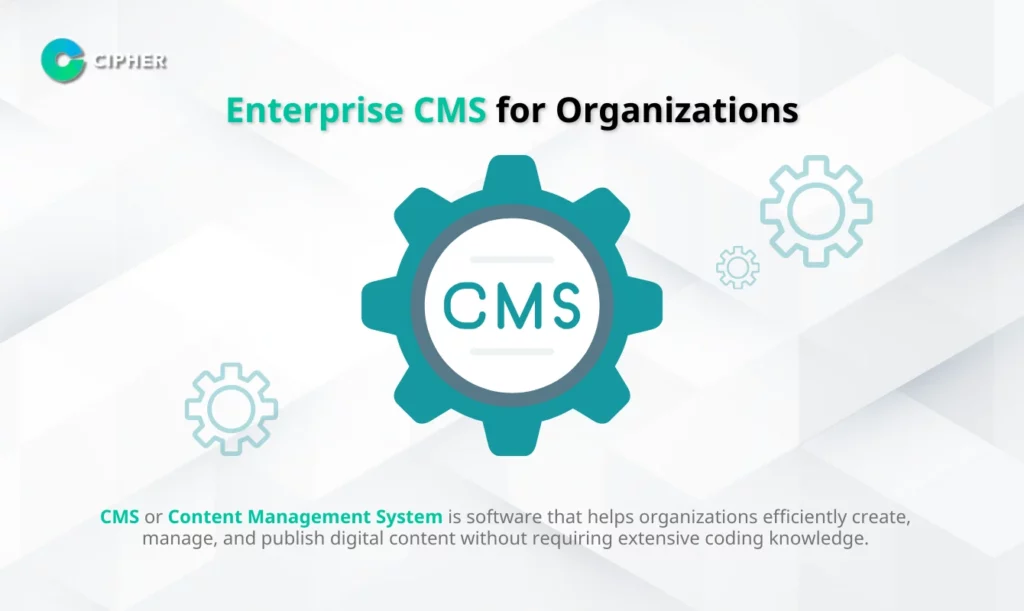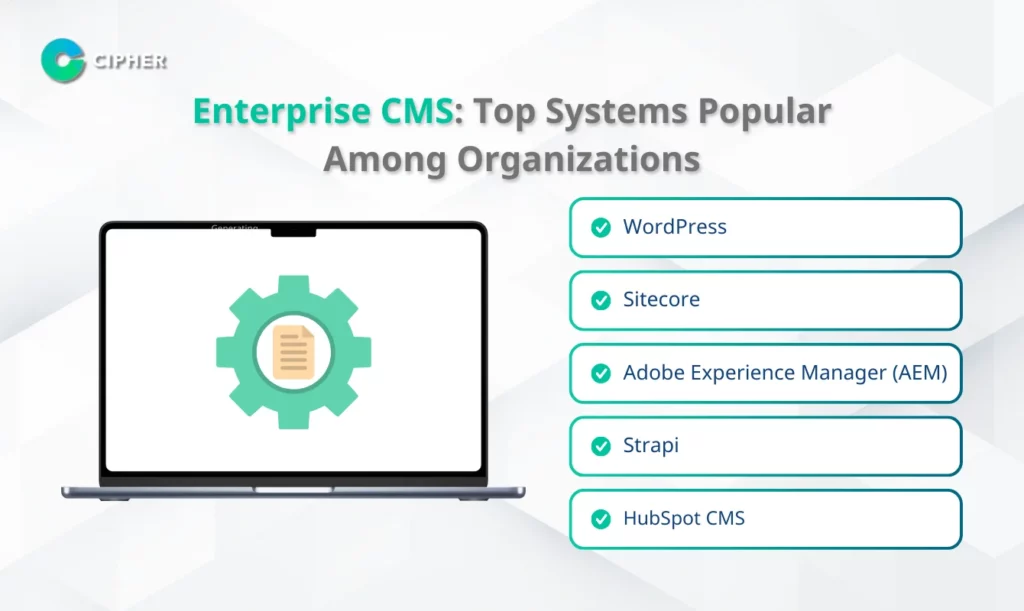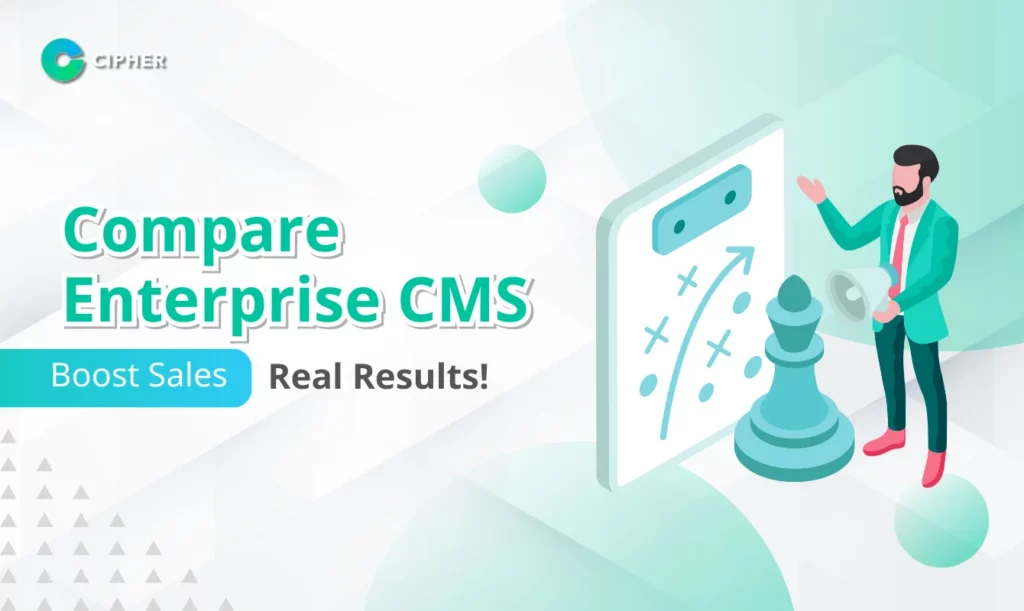In today’s digital business world, choosing the right Enterprise CMS is a crucial factor for organizational success, especially for large organizations that need to manage substantial amounts of content. This article will introduce you to and help you compare Enterprise CMS systems used by leading organizations worldwide, helping you confidently decide which CMS best suits your organization’s needs and discover how to choose an enterprise CMS that meets your business requirements.
Understanding How to Compare Enterprise CMS for Organizations

CMS or Content Management System is software that helps organizations efficiently create, manage, and publish digital content without requiring extensive coding knowledge. Enterprise CMS systems must support large-scale operations, provide high security, and offer flexibility to customize according to specific needs. Many organizations often wonder what the best CMS for their business is, and the answer depends on the specific requirements of each organization.
Currently, there are several types of CMS to choose from, including traditional (Monolithic), Headless, and Hybrid, each with distinct advantages and limitations.
Compare Enterprise CMS: Top Systems Popular Among Organizations
Before we dive deep into each platform, let’s understand the key features organizations should consider when choosing an Enterprise CMS:
- Content management capabilities
- Ease of use for marketers and content creators
- Flexibility for developers
- Security system.
- Scalability and integration with other systems
- Scalability and integration with other systems
- Total cost of ownership

1. WordPress
WordPress is the world’s most popular CMS, easy to use and suitable for organizations of all sizes.
Advantages:
- Easy to use, doesn’t require extensive technical knowledge
- Numerous plugins and themes to choose from
- Low cost compared to other CMS
- Large user community and good support
Limitations:
- May face security challenges if not properly maintained
- Performance may decrease when using multiple plugins
- May not be suitable for organizations with highly complex requirements
2. Sitecore
Sitecore is an enterprise-level CMS with outstanding marketing capabilities and customer experience creation.
Advantages:
- Comprehensive Digital Experience Platform (DXP)
- Supports multi-channel content delivery
- Advanced marketing and customer experience tools
- Enterprise-level security
Limitations:
- High cost
- Requires a team with specialized expertise
- Complex installation and maintenance
3. Adobe Experience Manager (AEM)
AEM is an enterprise content management system that combines digital asset management with marketing capabilities.
Advantages:
- Seamless integration with other Adobe systems
- Powerful Digital Asset Management (DAM) tools
- Supports omnichannel operations
- Includes AI system (Adobe Sensei) to assist in operations
Limitations:
- Very high price
- Complex installation and management
- Requires a highly skilled team
4. Strapi
Strapi is a Headless CMS that has gained popularity and grown rapidly in the past few years.
Advantages:
- Open Source with no initial costs
- High flexibility for developers
- Supports content delivery to multiple platforms
- Fully customizable
Limitations:
- Requires technical knowledge for installation and use
- Marketing tools may not be as comprehensive as traditional CMS
- May require additional user interface development
5. HubSpot CMS
HubSpot CMS is part of a comprehensive Inbound Marketing platform.
Advantages:
- Integrates with HubSpot’s marketing, sales, and customer service tools
- Includes drag-and-drop webpage building tools
- Supports in-depth personalization
- Good security and performance systems
Limitations:
- May have customization limitations compared to WordPress
- High price for small businesses
- Maximum benefits are realized when used with other HubSpot systems
Our Services
At Cipher, we specialize in providing consultation and implementing comprehensive Digital Marketing services, including selecting and developing the right CMS for your business. Our services include:
- Analysis and consultation on selecting the appropriate CMS
- Website design and development on various CMS platforms
- CMS system maintenance and support
- Training your team to use CMS effectively
Summary
To compare Enterprise CMS systems and choose the right one is an important decision that will affect your organization’s digital success. WordPress is suitable for organizations that need agility and have limited budgets. Sitecore and Adobe Experience Manager are suitable for large organizations requiring comprehensive systems. Strapi is ideal for businesses that need flexibility and innovation. HubSpot CMS is perfect for businesses that prioritize inbound marketing.
To know how to choose an enterprise CMS that suits your business, you should consider your needs, budget, and business goals to select the top CMS that will drive your organization toward success in this digital era.
Frequently Asked Questions (FAQs)
What types of CMS are there?
There are several types of CMS such as traditional (WordPress, Drupal), Headless (Strapi, Contentful), Hybrid (dotCMS, Magnolia), and SaaS (HubSpot CMS, Wix).
What is a CMS?
CMS (Content Management System) is a system that allows users to create, manage, and publish digital content without requiring coding knowledge.
What are ERP and CRM?
ERP (Enterprise Resource Planning) is an organizational resource management system, while CRM (Customer Relationship Management) is a customer relationship management system. Both systems differ from CMS, which focuses on content management.
What is CMS Software?
CMS Software is software that helps manage digital content, such as WordPress, Joomla, Drupal, Sitecore, and Adobe Experience Manager.
What does CMS stand for?
CMS stands for Content Management System, which is a tool for creating, editing, and managing content on digital platforms.





